
Irritable bowel symptom (or IBS) is a common digestive system disorder involving bloating, painful cramps, and constipation or diarrhea.
However, many sufferers remain unaware of the ways in which their diet may be dramatically exacerbating their symptoms.Before you give up hope, consider these top ten triggers for digestive problems and begin a period of trial and error to determine how these foods may be affecting your IBS.
1. Olestra (and other artificial fats)
The Federal Drug Administration (FDA) approved Olestra in 1996 as a fat substitute for use in human food.
It was marketed shortly thereafter by Proctor & Gamble under the brand name “Olean,” and a fat-free revolution was born.
Coincidentally, or not, in the nearly 20 years since Olestra began replacing natural fats in processed foods and millions of people jumped on the no-fat bandwagon, obesity rates in the U.S. have doubled.
Olestra and other artificial fats are a digestive tract’s worst nightmare. Olestra quickly depletes your blood level of fat-soluable vitamins, including A, D, K and E, which are all powerful antioxidants that help prevent cancer and heart disease.
In fact, a four-week study of Olestra found that participants who consumed just three milligrams a day, about the equivalent of six potato chips, cause a 20 percent decline in the body’s level of beta carotene, as well as a decrease of 38 percent in the body’s lycopene stores.
A study by Proctor & Gamble themselves showed that eight milligrams a day of Olestra caused a five-fold increase in incidents of diarrhea, compared to natural fats, and participants who were given Olestra were twice as likely to have loose stools, nausea, gas, and anal leakage of greasy fecal matter and Olestra liquids. If that’s not enough to make you crave good old natural fat, nothing is.

2. Alcohol
Depending on the severity of your IBS symptoms, you may want to consider lowering your intake of alcohol or shunning booze altogether.
Alcohol can cause gastrointestinal problems even for those who don’t suffer from IBS, particularly diarrhea, acid reflux and heartburn.
Alcohol has been shown to interfere with the function and the structure of the gastrointestinal tract.
It can prevent the muscles that separate the stomach from the esophagus from contracting, causing heartburn, and it damages the lining of the esophagus, increasing the risk of esophageal cancer.
It can cause diarrhea in those who suffer from IBS by preventing nutrients from being absorbed by the body, and it allows toxins to penetrate through the intestinal walls.
Additionally, alcohol alters the secretion of gastric chemicals, causes an imbalance of bacterial flora in the gut and makes the esophageal sphincter relax, causing acid reflux and heartburn.
Non-IBS sufferers should limit their alcohol consumption to one drink a day for women and two drinks a day for men.
If you have mild IBS, limit your alcohol intake to just a few drinks a week, and avoid beer, which is reported to be the worst alcoholic offender by many of those who suffer from IBS. If your IBS symptoms are severe, it’s best to avoid all alcohol.
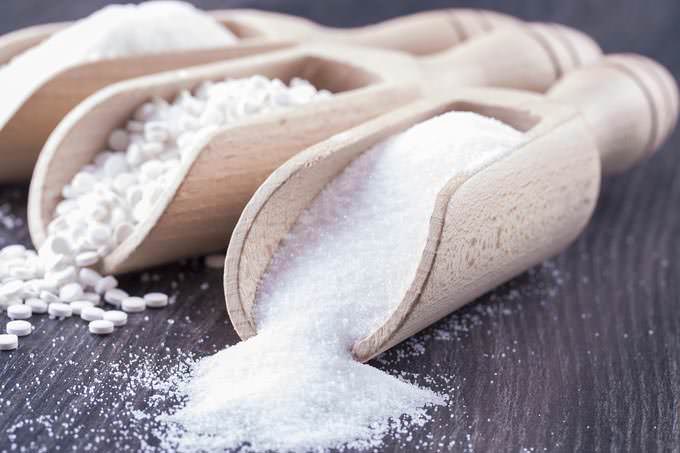
3. Aspartame (and other sweeteners)
Artificial sweeteners like aspartame, sorbitol, saccharin and sucralose are found in a large number of foods, including diet soda and commercially made breads, desserts and cereals.
If you’re trying to cut calories and lose weight, artificial sweeteners like aspartame may seem like a healthy alternative to sugar, but in reality, nothing could be farther from the truth.
Aspartame, sold under the brand names Equal and Nutrasweet, was denied approval by the FDA for twenty years before finally being approved in what some call political strong-arming.
Aspartame has a number of negative side effects, which include migraines, changes in vision, insomnia, an increased heart rate, memory loss, depression and joint and abdominal pain. It has also been associated with seizures and brain cancer.
While a gram of refined sugar has four calories, a gram of aspartame has zero. This makes it seemingly ideal for making candy, baked goods and soda that calorie-conscious consumers will buy, but if those dieters have IBS, the detriments will far outweigh the benefits.
Aspartame increases pH levels in the intestines and reduces the beneficial bacteria in the gut by 50 percent, causing gastrointestinal distress even in those who don’t suffer from IBS.
If your IBS seems to worsen after consuming food containing aspartame, you will be better off either staying away from sweets altogether or setting a calorie allowance that enables you to indulge in real sugar every once in awhile.

4. Caffeine
While a cup of coffee can help you wake up in the morning or pick you up in the afternoon, you need to be careful about your overall caffeine intake if you have IBS.
Caffeine is a stimulant, and as such, it stimulates your gastrointestinal tract to excess, which has a laxative effect.
It also increases production of the stress hormone cortisol and raises epinephrine (adrenaline) and norepinephrine to increase your blood pressure and heart rate.
Because of the increased blood pressure, blood is diverted from your digestive system, leaving you with more severe IBS symptoms.
Additionally, caffeine speeds up the digestion process and allows the premature emptying of highly acidic stomach contents into the small intestine.
Caffeine is also a diuretic, dehydrating your body. Proper hydration is essential in the process of digestion, and dehydration can cause severe constipation. The acids found in coffee, including decaf varieties, cause an over-secretion of gastric acid.
If you’re an avid coffee drinker and have IBS, you may want to consider swapping out your daily brew for tea. If you can’t part ways with your java, however, there is a great alternative.
Herbal coffee is a drink that brews like coffee and tastes like it, too. The difference is that herbal coffee isn’t caffeinated and doesn’t contain acids.
It also has nutritional value, including potassium and the soluable fiber inulin, which helps maintain healthy levels of microflora in the intestines to actually help improve some IBS symptoms.
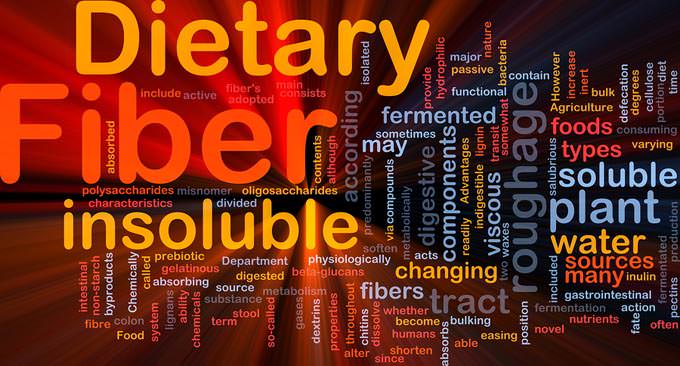
5. Insoluble fibers
Insoluble fibers are found in whole grains, greens, sprouts, legumes, seeds, nuts and raw fruits and vegetables.
Insoluble fiber is a highly potent gastrointestinal stimulant, but completely cutting insoluble fiber out of your diet is dangerous and unhealthy.
Insoluble fiber is essential for preventing diverticulitis, an infection of the intestinal walls. It’s also an important ally in the fight against cancer.
Insoluble fiber can’t be digested. Instead, it passes through the digestive system whole, helping to clear it of waste and food.
Since even those who suffer from IBS need insoluble fiber, it’s essential to consume it in a way that reduces the symptoms of IBS.
Never eat insoluble fiber by itself. Instead, eat it alongside a healthy dose of soluable fiber, such as rice, pasta and oatmeal.
While most fruits and vegetables contain insoluble fiber, you can reduce their effects on your IBS by peeling, chopping, cooking and pureeing them to lessen the impact of the fiber.
Beans and lentils are great sources of insoluble fiber, and even though they can cause digestive discomfort even in those without IBS, there are ways to reduce the effects of eating them.
Since the insoluble fiber in lentils and beans is found in the outer skins, you can help your body process it by cooking and pureeing these foods and adding them to soups, dips, spreads and sauces.
Nuts are another valuable source of insoluble fiber. Grind them finely in a coffee grinder and add them to baked goods recipes, oatmeal and smoothies for maximum health benefits with minimum impact on your IBS.
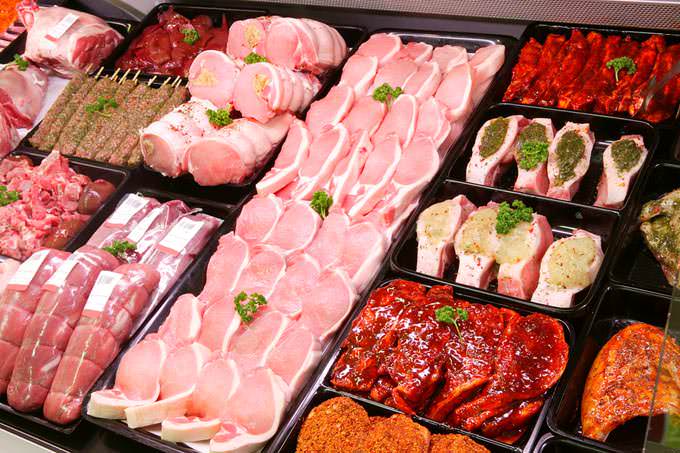
6. Red meat
Even if you don’t have IBS, you should eat red meat in moderation. Recent research shows a possible association between Alzheimer’s and large quantities of red meat.
The iron in red meat, as well as the proteins Tau and beta-amyloid, accumulate in the brain and can kill or disrupt nerve cells.
Other recent studies show that cardiovascular disease from eating red meat isn’t due to the saturated fat and cholesterol, as previously believed.
Instead, researchers are beginning to believe that it’s the production of trimethylamine-N-oxide, or TMAO, which is produced when a compound in red meat called carnitine is broken down by microbes in the gut.
TMAO promotes the growth of harmful bacteria in the gut and is associated with athersclerosis, the fatty buildup in the arteries.
Many studies have shown that eating a lot of red meat increases your risk of colon cancer, while fish, chicken and other lean meats actually have the opposite effect, helping to prevent cancer of the colon.
In addition, red meat that you buy at the meat counter in the grocery store is typically full of chemicals, hormones and antibiotics, which help animals gain weight faster to produce more meat and protect the animals from disease. These chemicals, hormones and antibiotics may increase the risk of getting certain cancers.
If you have severe IBS, you should consider cutting red meat out of your diet altogether. If your symptoms are milder, experiment with red meat and cut down on your consumption to help prevent IBS flare-ups and improve your overall health.
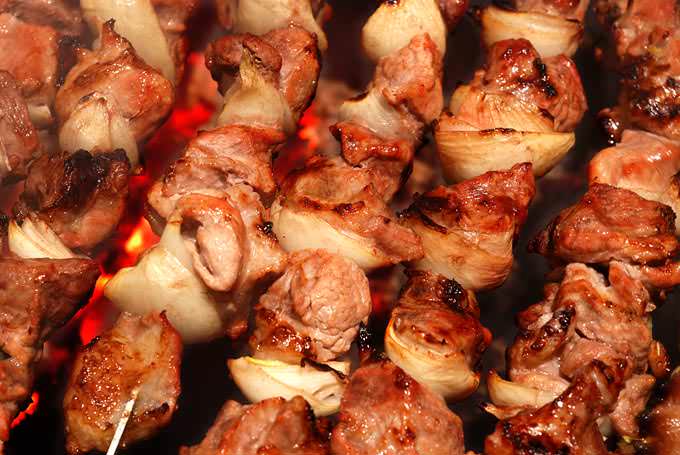
7. Fatty foods
Fatty foods are hard to digest and often cause diarrhea and other gastrointestinal ailments.
Breaking down fats in your body requires bile. The more fatty foods you eat, the more bile your body produces to help break them down.
Excessive amounts of bile in your digestive tract irritate the lining of the colon, resulting in spasms, pain and diarrhea.
To lower the fat in your diet, limit fatty sweets like cakes, cookies, pastries and chocolates, as well as red meat, particularly lamb and sausages. Use low-fat dairy products and remove the skin from chicken, fish and other meats.
Use healthy oils when you cook, such as olive, canola, sunflower, peanut and sesame oils, or use nonstick sprays or nonstick pans, which limit the amount of oil required for cooking.
There are other ways to reduce your daily fat intake. Replace butter on your toast with apple butter or jam. Make healthy omelets using one whole egg and the whites of two eggs.
Opt for broth-based soups instead of cream-based. Instead of frying or sautéing meats and vegetables, steam, grill or bake them. Applesauce is a low-fat alternative to oil and butter in quick bread and muffin recipes. Substitute applesauce for ½ the butter or oil in these recipes.
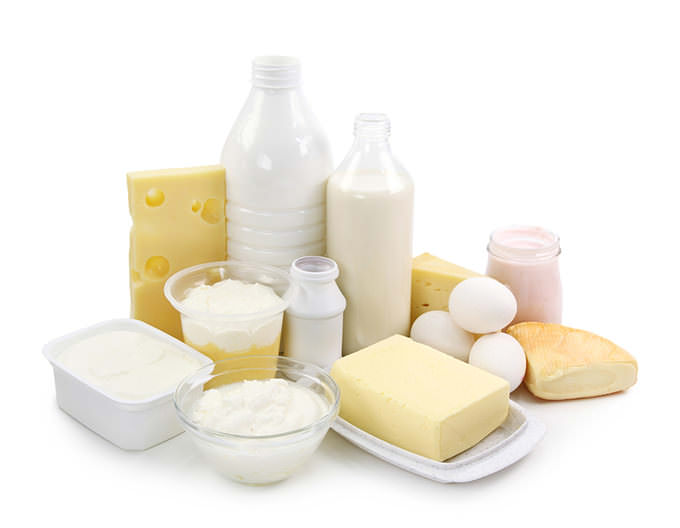
8. Dairy
While some IBS patients have no problem digesting dairy foods, it is worth noting that roughly 25% of people with IBS are also intolerant to lactose, which means their bodies are unable to digest the sugars found in dairy products, including milk, cheese, yogurt and butter.
Lactose intolerant individuals have a deficiency of the enzyme lactase, which is produced by the cells lining the small intestine.
Lactase is essential for breaking down the lactose in dairy products into the two simpler, digestible sugars glucose and galactose, which are then absorbed into the bloodstream.
Undigested lactose that moves through your digestive system ferments in the lower gut, causing pain, gas, diarrhea, bloating and nausea.
Most people who are lactose intolerant can consume small amounts of dairy products without incident, but the dairy products should be eaten with other foods rather than on their own.
Soy products are often used as dairy substitutes. Instead of butter, try soy margarine. Replace milk with soymilk, almond milk or rice milk.
Lactose-free dairy products are widely available, and many brands of lactose-free milk, yogurt and sour cream are very close in taste to their lactose-containing counterparts.
If you notice a link between your symptoms and consumption of dairy foods, try cutting down on dairy products to see whether there are any improvements.
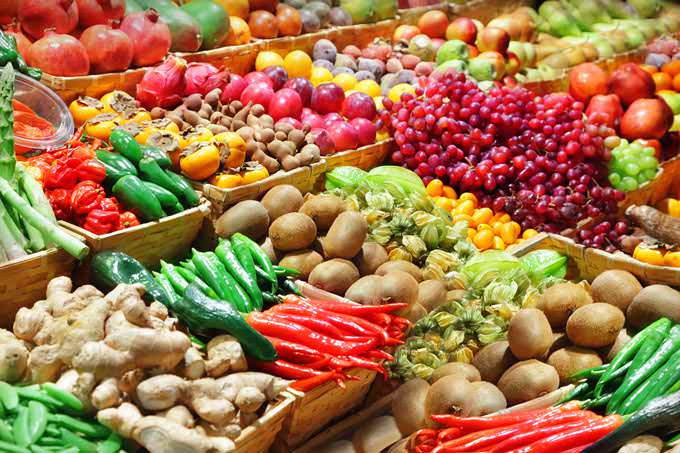
9. Vegetables
Vegetables boast huge health benefits for your whole body, but if you have IBS, you need to remember that consuming too many servings of vegetables can cause stomach cramps, diarrhea and excessive gas.
Some vegetables are worse than others on this score, especially greens, sprouts, peas, green beans, celery, onions and garlic.
When eating these vegetables, chop them into little pieces and cook them thoroughly.
There are still many vegetables that those with mild IBS can eat, incluing carrots, squash, turnips, parsnips, beets and plantains.
To determine which vegetables cause the most problems for you, eat just one vegetable at a time. Instead of stir-frying a handful of different types of veggies, limit it to one. Remove any stems and peels and thoroughly cook the vegetables to make them easier to digest.
If you have severe IBS, you can try fermented vegetables, such as kim chi, cortido and sauerkraut. Fermenting acts as a pre-digestion process, breaking down sugars and making these alternatives easier for your body to absorb into the bloodstream.
You can purchase high-quality fermented vegetables at your local health food store. Make sure the packaging specifies that the vegetables are raw, ensuring you get the most nutritional value out of each serving of fermented veggies.
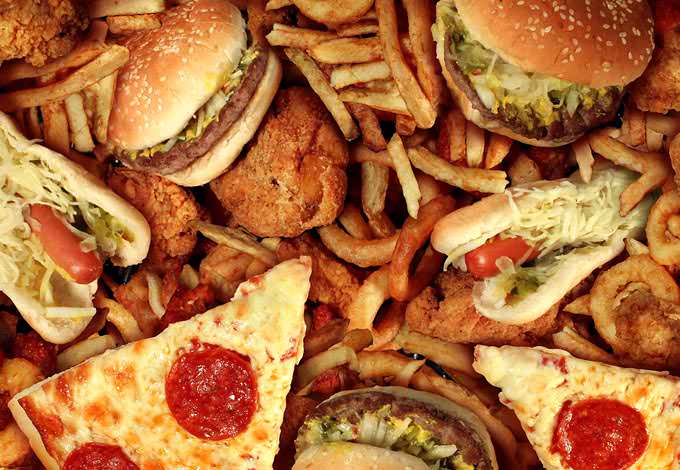
10. Fast food
Fast food isn’t good for anyone, and if you suffer from IBS, it’s especially important to stay away from fast food, which is laden with fat, salt and chemicals.
It’s true that fast food is convenient and usually very cheap, but it will take a major toll on your health and your IBS if you consume too much of it.
Even those who are not suffering from IBS will likely experience symptoms every now and then from eating fast food, including gas, bloating and diarrhea.
Fast food restaurants typically use very low-quality meat, which requires a great deal of processing and chemical additives to make them fit for human consumption.
Even the seemingly healthy alternatives, like chicken and fish, are heavily processed and typically come from massive, industrial farms that pump animals full of hormones and antibiotics to keep them alive in crowded cages and to make them grow rapidly to meet the high demands of the fast-food industry.
Additionally, fast food is extremely high in fat, which is difficult to digest, and salt, which dehydrates your body and causes other health problems. Those who eat fast food just twice a week are at double the risk for developing type-2 diabetes and heart disease.
If you eat fast food out of convenience, a lifestyle change is in order. Make a resolution to take your lunch or dinner to work.
Make a healthy wrap or sandwich the night before, or make extra servings when you cook dinner so that you have healthy leftovers to take to work. Not only will you help prevent IBS symptoms, but you will be much healthier in general, and you’ll likely lose weight.

